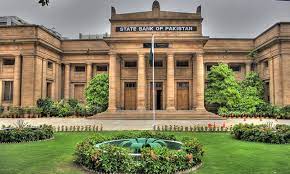PTBP Web Desk
US President Donald Trump has assured Ukraine’s President Volodymyr Zelenskiyy that the United States will help guarantee Kyiv’s security in any potential deal to end Russia’s war. The commitment was made during a high-profile summit at the White House on Monday, just days after Trump’s controversial meeting with Russian President Vladimir Putin in Alaska.
Speaking to reporters alongside Zelenskiyy, Trump declared: “When it comes to security, there’s going to be a lot of help. They (Europe) are the first line of defense because they’re there, but we’ll help them out.”
The security guarantees mark a major step for Ukraine, which has been seeking international backing against Russian aggression since the war began. Zelenskiyy described Trump’s pledge as “a major step forward” and said the guarantees would be formalized on paper within the next 10 days.
In a bid to strengthen ties with Washington, Kyiv also offered to purchase around $90 billion worth of US weapons. Analysts see this as a strategic move by Ukraine to ensure long-term military support while signaling trust in Washington’s role in shaping a post-war security framework.
The latest White House meeting reflected a far warmer tone than the disastrous February encounter, where Trump and Vice President JD Vance publicly criticized Zelenskiyy for lacking gratitude. This time, Zelenskiyy adopted a deferential tone, thanking Trump repeatedly in front of reporters.
Trump welcomed the Ukrainian leader warmly, even complimenting his black suit—a departure from Zelenskiyy’s usual military attire that had reportedly annoyed Trump earlier this year. When asked about his message to Ukrainians, Trump responded: “We love them.”
Despite the diplomatic progress, a peace deal remains far from certain. Hours before the talks, Russia’s Foreign Ministry dismissed the possibility of NATO troops securing any deal, complicating Trump’s assurances.
Both Trump and Zelenskiyy emphasized the importance of bringing Putin into direct negotiations. Trump revealed that he had spoken with Putin and was arranging a meeting between the Russian and Ukrainian presidents, followed by a trilateral summit involving all three leaders.
European leaders, however, remain cautious. German Chancellor Friedrich Merz announced that a Putin-Zelenskiyy meeting could take place in Hungary within two weeks. This would mark the first high-level direct talks since June, when Russia rejected Zelenskiyy’s call for a face-to-face meeting in Turkey.
European leaders—including Emmanuel Macron, Merz, and representatives of the EU and NATO—traveled to Washington to back Zelenskiyy and to pressure Trump into demanding a ceasefire before advancing negotiations.
While Trump initially supported the ceasefire idea, he shifted after meeting Putin, adopting Moscow’s stance that any peace agreement should be comprehensive rather than temporary. Trump explained: “I wish they could stop, I’d like them to stop. But strategically that could be a disadvantage for one side or the other.”
Putin’s envoy, Kirill Dmitriev, echoed that sentiment on X, calling the developments “an important day of diplomacy with focus on lasting peace, not a temporary ceasefire.”
Trump’s approach has drawn both hope and skepticism. On one hand, he is pushing for a rapid resolution to Europe’s deadliest conflict in 80 years. On the other hand, Kyiv and its allies fear Trump may pressure Ukraine into concessions favoring Moscow.
Trump has suggested that Ukraine should abandon its ambitions of joining NATO and give up efforts to retake Crimea, annexed by Russia in 2014. Zelenskiyy has already rejected parts of Putin’s Alaska proposal, which demanded Ukraine surrender more of its eastern Donetsk region.
Any territorial concessions, Zelenskiyy insists, would require approval through a national referendum.
The war, which Russia continues to call a “special military operation”, has already killed or wounded more than a million people, including thousands of Ukrainian civilians. Large swathes of eastern Ukraine remain destroyed, with millions displaced since Russia’s invasion in 2022.
European leaders stress that any lasting peace must ensure Ukraine’s sovereignty and European security. Macron said: “When we speak about security guarantees, we speak about the whole security of the European continent.”
Trump’s promise of security guarantees has raised hopes for a breakthrough, yet serious challenges remain. The Kremlin’s reluctance to allow NATO’s involvement, combined with Ukraine’s refusal to cede key territories, makes a swift peace deal unlikely.
Still, the upcoming Putin-Zelenskiyy talks in Hungary—if confirmed—could be a turning point. For now, Trump’s role as a mediator is under intense global scrutiny, with Washington, Kyiv, Moscow, and European capitals waiting to see whether his diplomacy leads to peace—or deeper divisions.




